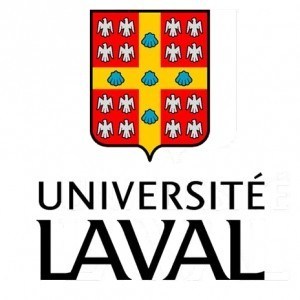Photos of university / #ulaval
The Bachelor of Science in Occupational Therapy at Laval University is a comprehensive undergraduate program designed to prepare students for a rewarding career in helping individuals of all ages to participate fully in daily life activities. This program combines theoretical knowledge, practical skills, and clinical experience to equip graduates with the competencies needed to assess, plan, and implement therapeutic interventions that promote independence and improve quality of life for clients facing physical, mental, or developmental challenges. Throughout the program, students engage with a diverse curriculum covering human anatomy, physiology, psychology, neuroscience, and the principles of occupational therapy. They learn to develop individualized treatment plans, collaborate effectively with multidisciplinary teams, and incorporate evidence-based practices into their work. The program emphasizes a strong holistic approach, recognizing the importance of cultural sensitivity and client-centered care in diverse settings. Students have access to state-of-the-art laboratories and clinical practice placements, which are integral to applying classroom learning in real-world contexts. By the end of the program, graduates are well-prepared to pursue licensing and certification in occupational therapy, enabling them to work in hospitals, rehabilitation centers, community health organizations, schools, and private practice. Laval University's commitment to excellence ensures that students receive a rigorous education that not only meets professional standards but also fosters critical thinking, ethical practice, and lifelong learning. The Bachelor of Science in Occupational Therapy is ideal for individuals passionate about making a positive impact on people's lives by facilitating their participation in meaningful activities and enhancing their overall well-being through specialized therapeutic interventions.
The Occupational Therapy undergraduate program at Laval University is designed to prepare students to become skilled healthcare professionals dedicated to improving the quality of life for individuals across all ages who face physical, mental, or developmental challenges. The curriculum combines theoretical coursework, practical training, and research components to provide a comprehensive education in occupational therapy. Students will gain a thorough understanding of human development, anatomy, physiology, and psychology, all of which form the foundation for effective assessment and intervention strategies. The program emphasizes the importance of client-centered care, cultural sensitivity, and evidence-based practices, ensuring graduates are well-equipped to meet diverse needs within healthcare settings.
Throughout the program, students engage in hands-on learning experiences through clinical placements in hospitals, community centers, rehabilitation facilities, and schools. These placements allow students to apply theoretical knowledge in real-world contexts under the supervision of experienced occupational therapists. Coursework covers essential topics such as therapeutic techniques, adaptive strategies, assistive technology, and the promotion of functional independence. Special attention is given to areas like pediatric therapy, gerontology, mental health, and physical rehabilitation, reflecting the broad scope of practice within occupational therapy.
Laval University’s program also fosters a strong research component, encouraging students to participate in ongoing studies that contribute to evidence-based practice. Graduates are prepared to work in multidisciplinary teams, advocating for their clients and developing individualized treatment plans. Additionally, the program promotes lifelong learning and professional development, providing students with the skills necessary to continue growing as practitioners throughout their careers.
With its dedicated faculty, well-equipped facilities, and strong ties to healthcare institutions, Laval University's Occupational Therapy program offers a rigorous and supportive environment for aspiring occupational therapists. Upon completion, graduates are eligible to apply for licensing and certification, enabling them to practice across a variety of settings and contribute meaningfully to their communities’ health and well-being. This program is ideal for students passionate about making a positive impact on people's lives through compassionate and innovative occupational therapy practices.
Program requirements for the Occupational Therapy program at Laval University include a combination of academic prerequisites, language proficiency, and application materials. Applicants must have completed a bachelor's degree from an accredited institution, demonstrating strong academic performance, particularly in courses related to health sciences, biology, psychology, and human development. A minimum GPA may be required, reflecting competitive academic standing. Proficiency in French is mandatory, as the program is delivered primarily in this language; therefore, applicants must provide proof of language proficiency, such as a DELF or DALF certificate, unless they are native speakers or have completed previous education in French. In addition, applicants might need to submit standardized test scores, letters of recommendation, a personal statement or statement of intent, and a resume or curriculum vitae detailing relevant experience or volunteer work in healthcare or related fields. Some prerequisite coursework, such as anatomy and physiology, must be completed prior to admission. The application process is competitive, and meeting the minimum requirements does not guarantee acceptance. International students need to check additional visa and language considerations. The program may also require an interview or assessment as part of the admission process to evaluate candidates’ motivation and suitability for occupational therapy. All applicants are advised to consult the Laval University admissions website for the most current and detailed requirements, as they may evolve over time.
Funding for the Occupational Therapy program at Laval University is primarily available through a variety of sources aimed at supporting both domestic and international students. Quebec residents can benefit from government-sponsored financial aid programs such as the Quebec Financial Assistance Program (Aide financière aux études), which offers loans and bursaries based on financial need, academic standing, and other criteria. Additionally, the provincial government provides specific bursaries and grants for students pursuing health sciences degrees, including occupational therapy. Students are encouraged to apply early to maximize their chances of receiving financial support.
Laval University also offers scholarships dedicated to students in health sciences, which can be awarded based on academic excellence, leadership, or community involvement. These include merit-based scholarships that recognize high-achieving students upon admission or throughout their studies. International students enrolled in the occupational therapy program are eligible for certain Laval University scholarships and may also seek financial sponsorships from their home countries or private organizations.
Furthermore, various external organizations and professional associations related to rehabilitation and health sciences provide bursaries or grants. In some cases, students may be eligible for student loans offered through federal programs, such as the Canada Student Loans Program, which provides financial assistance based on income and family circumstances. Laval University's Career Services and the Office of Scholarships and Financial Aid assist students in identifying and applying for suitable funding opportunities.
Part-time work opportunities within the university or in related health institutions can also help students finance their studies. Cooperative education or internship placements, sometimes funded or partially supported by external agencies, not only provide practical experience but may also offer stipends or financial remuneration.
Finally, many students supplement their funding through personal savings, family support, or private loans. The university recommends planning a comprehensive financial strategy early in the academic journey to ensure the completion of the occupational therapy program without undue financial stress.
Occupational therapy at Laval University is a comprehensive undergraduate program designed to prepare students for a professional career in helping individuals develop, recover, or maintain the skills necessary for daily living and working. The program emphasizes a holistic approach, integrating theoretical knowledge with practical skills to enable graduates to assess and intervene in various environments, including hospitals, rehabilitation centers, schools, and community settings. Students benefit from a curriculum that combines coursework in anatomy, physiology, psychology, and health sciences with hands-on clinical placements, ensuring they acquire both the scientific foundation and practical competencies required in the field. The program also emphasizes the importance of cultural competence, ethical practice, and lifelong learning, aligning with the evolving needs of healthcare systems and diverse populations. Small class sizes and close supervision by experienced faculty foster an engaging learning environment, allowing students personalized guidance and mentorship. Laval University’s occupational therapy program is accredited by relevant professional bodies, ensuring that graduates meet national standards and are well-prepared for certification exams. Additionally, the university offers opportunities for research involvement, community engagement, and specialization in areas such as pediatric, geriatric, mental health, or physical rehabilitation occupational therapy. Graduates emerge as qualified occupational therapists capable of contributing effectively to multidisciplinary teams and improving clients’ quality of life through tailored interventions. The program duration is typically four years for a bachelor's degree, with options for advanced studies including master's or doctoral programs, focusing on research or specialized clinical practice. The university’s facilities include well-equipped laboratories, simulation centers, and collaborative spaces that enhance student learning and practical experience. Laval University’s strong links with healthcare institutions and community organizations provide students with real-world exposure and networking opportunities. Graduates of this program are licensed and registered to practice in Quebec and across Canada, supporting the university’s reputation as a leading institution in health sciences education.


